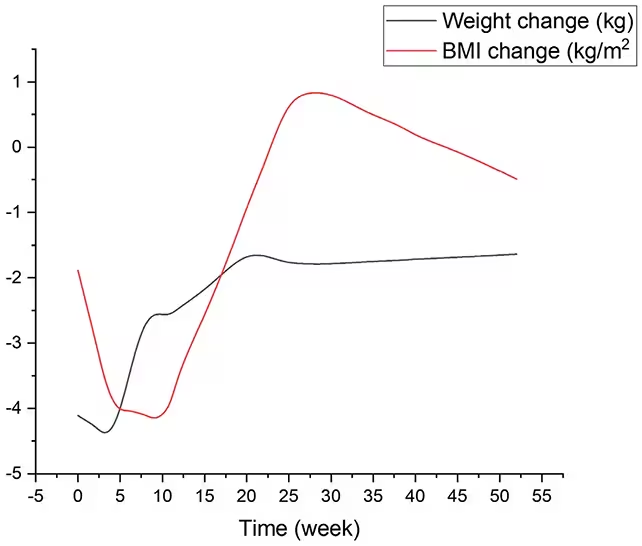4 Minutes
The Science Behind Anti-Obesity Medications and Weight Regain
New research provides compelling insight into the effectiveness and limitations of anti-obesity medications (AOMs), particularly GLP-1 receptor agonists like Ozempic and Wegovy, which are increasingly being adopted to manage obesity worldwide. A comprehensive review conducted by scientists at Peking University in China assessed 11 prior studies involving a total of 2,466 adults, exploring how discontinuing these medications affects long-term weight management.
How GLP-1 Drugs Help with Weight Loss
GLP-1 receptor agonists, including widely used drugs such as Ozempic, Wegovy, and Zepbound (tirzepatide), mimic the naturally occurring hormone glucagon-like peptide-1. This hormone plays a vital role in regulating appetite and blood glucose. By stimulating satiety and lowering food intake, GLP-1 agonists have demonstrated significant effectiveness in promoting weight loss in both clinical trials and real-world settings.
Study Findings: Weight Regain is Common and Rapid After Treatment Ends
Despite the initial success of these weight-loss medications, the review found a consistent pattern: individuals tended to regain lost weight once they stopped taking the drugs. According to first author Han Wu, "Significant weight regain occurred eight weeks after discontinuation of AOMs and was sustained through 20 weeks." On average, participants regained approximately 2.5 kilograms (5.5 pounds) within 20 weeks of ending treatment.
Interestingly, the propensity to regain weight was most pronounced for those who had been treated with GLP-1 receptor agonists, which contributed notably to the overall findings. Moreover, people who experienced the greatest initial weight loss also tended to regain more of that weight after stopping therapy.
The researchers carefully adjusted their analysis for confounding factors, such as variations in physical activity, the presence of diabetes, and other health conditions that could affect weight outcomes.

Unresolved Questions: Why Does Weight Return?
The underlying reasons for this rebound effect remain uncertain. While it's possible that metabolic adaptations or physiological changes during weight loss make it harder to sustain lower weight after treatment ends, more research is needed to understand these mechanisms. As the study authors note, “The effects of weight cycling on health and systemic metabolism are not thoroughly defined.”
A notable example from the review is a 2023 clinical trial examining tirzepatide (marketed as Zepbound). When participants discontinued their weekly injections and switched to a placebo, they regained, on average, half of the weight they had previously lost.
Broader Context: Weight Regain Beyond Medication
The phenomenon of weight rebound is not restricted to drug-based interventions. Similar trends have been observed after surgical approaches such as gastric bypass and vertical banded gastroplasty, suggesting that maintaining long-term weight loss is a complex challenge, regardless of method.
As the popularity of AOMs continues to rise, so do concerns about potential side effects, long-term health risks, and the sustainability of treatment outcomes. Experts emphasize the importance of ongoing research into post-treatment support strategies and alternative therapies that might help individuals maintain a healthy weight after discontinuing medication.
Future Research and Recommendations
To better understand and address this issue, the research team urges future studies with larger sample sizes and extended follow-up periods. Such investigations could elucidate the biological and behavioral factors driving weight regain and inform improved clinical guidelines. There is also a clear need for the development of comprehensive weight management programs that extend beyond the period of drug therapy.
As articulated by the researchers: “Studies with longer follow-up duration are required to further investigate the potential factors associated with weight change after discontinuation of treatment.”
Conclusion
The latest findings underscore a significant challenge in obesity management: while GLP-1 receptor agonists and similar medications can deliver profound short-term weight loss, much of that progress is often lost soon after treatment stops. Understanding why this occurs and developing better strategies for sustained weight management remain urgent scientific and clinical priorities. For now, individuals considering or currently using anti-obesity medications should consult healthcare providers about long-term plans and the potential for weight regain after stopping prescribed therapy.
Source: bmcmedicine.biomedcentral



Comments